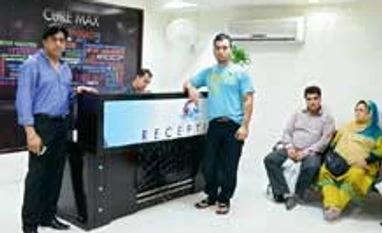The strict visa regime is making people give the country a miss in favour of other Southeast Asian nations like Thailand, Singapore and Malaysia which, although costlier, are seen as more welcoming of medical tourists. While there are no studies to show how much business is being lost annually, experts say getting a medical visa to India is almost impossible without hassles.
"Stringent visa rules are really ruining our prospects of becoming a hub for medical tourism," says Prathap C Reddy, founder and chairman of Apollo Hospitals. The medical tourism industry, valued at $10.5 billion globally in 2012, is estimated to reach a $32.5 billion by 2019. India was able to garner a chunk of this revenue initially, but despite its obvious advantages in terms of quality and costs, the country has been unable to grow the business, says Reddy.
Also Read
"Our infection rate is only half of the best hospitals in the world. India not only has clinical excellence, but it also has cost benefits. Having got that brand, we would have expected that India would become a great attraction for people, but that has not happened," he adds. The country attracted only 350,000 medical tourists in 2012 compared to 1.2 million by Thailand and 610,000 by Singapore, according to data from Patients Beyond Borders, a guidebook for medical tourism.
As things stand today, delays in visa processing are rampant, even in case of genuine medical emergencies, and the fee for visa processing is much higher when compared to Thailand or Malaysia.
Another visa-related hassle is the requirement for foreigners to periodically report to the police during their stay in India. "How can anyone ask a patient to go and report at a police station?" says Reddy.
Pradeep Thukral, chief executive officer of SafeMed, a medical travel facilitation agency and founder of the India Medical Tourism Association, says visa application process for medical tourists is cumbersome, to say the least: patients are asked to come to the Indian embassy which is not easy when they are sick, furnish a whole lot of documents like bank statements and medical reports and then referred to the embassy doctor for a second opinion. "It seems they try their best to dissuade the patient from going to India," adds Thukral.
Experts says tweaking the visa rules will go a long way in making India, which currently attracts only 3 per cent of the global medical tourists, an attractive destination for patients.
"As we aspire to harness the true potential of this enormous market, particularly against the backdrop of an attractive dollar/rupee conversion rate, a liberal visa regime would be of great help. Speedier grant of visas and their easy availability would go further in enabling the Indian medical sector," says Vishal Bali, group chief executive officer, Fortis Healthcare.
He says adequate public infrastructure outside the hospitals as in other countries would further strengthen India's position. In Thailand, for instance, medical tourists are treated with tea on arrival while they wait for their visa and then are taken in a bus waiting outside the airport to the hospital. Thailand promoted medical tourism when its currency depreciated in the 1990s and today it is one of the largest medical tourism destinations in the world. Singapore, too, is fast catching up, even as treatment costs there are comparable to those in the US.
"The governments in these countries help the industry with incentives and other support. In India, the government should also do the same and remove the barriers," says Reddy.
However, it is not just Southeast Asian countries which are becoming a competition for India. For the North American patients, destinations with improving healthcare infrastructure such as Mexico, Costa Rica and Colombia are fast emerging as attractive options, despite higher costs than India, say international healthcare experts.
Some experts even go to the extent of saying there is a case for abolishing medical visas altogether. Josef Woodman, chief executive officer, Patients Beyond Boarders, says medical visa ipso facto makes things more complicated and serves little purpose. "I see no reason not to abolish medical visas".
There's no doubt medical tourism's potential in terms of job creation is huge. Reddy says the sector can create 8-10 million jobs. To add to this, unlike Indonesia or some other counties, which don't offer liver or heart transplants, Indian hospitals can do everything which is done anywhere in the world. There success rates are impressive too. In Apollo for instance, the success rate for heart-related issues is around 99 per cent, and for liver transplants, it is about 90 per cent. To build on this advantage, Thukral says the government should look at issuing medical visas on arrival, provided the patient is carrying a minimum threshold of money for treatment. Among other suggestions, providing a multiple-entry visa for one year would help the medical tourism sector as well.
)